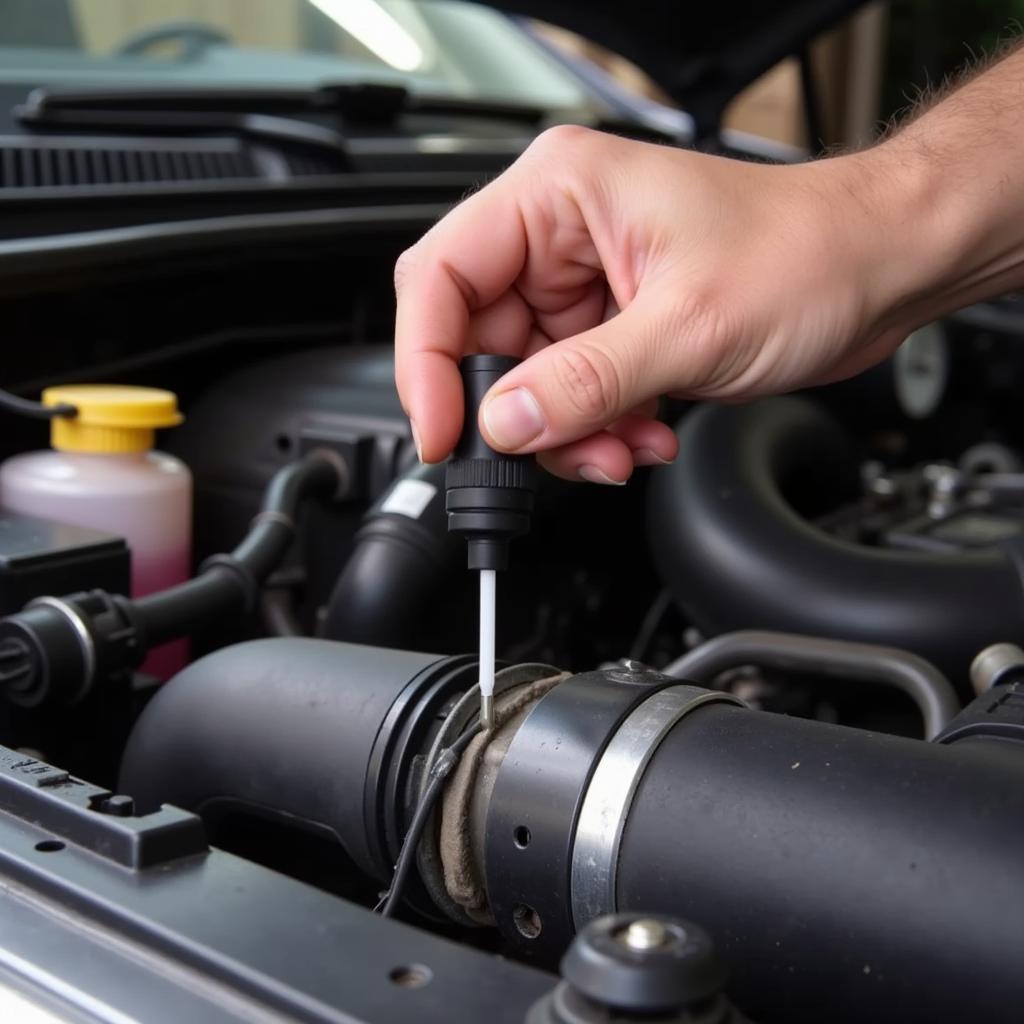Automatic transmissions offer a seamless driving experience, but when they malfunction, it can be a real headache. Identifying the Symptoms Of Car Automatic Transmission Problems early can save you from costly repairs and ensure your safety on the road. This article will guide you through the common signs of a failing automatic transmission.
Understanding the intricacies of automatic transmissions can be challenging. Fortunately, resources like those addressing automatic car clutch problems can offer valuable insights into related issues.
Common Symptoms of a Failing Automatic Transmission
Several warning signs indicate potential issues with your automatic transmission. These symptoms can range from subtle changes in performance to more noticeable problems. Ignoring these early indicators can lead to more severe damage and higher repair costs.
Slipping Gears
One of the most common symptoms of automatic transmission problems is slipping gears. This feels like the engine revs up without the car accelerating accordingly. You might also experience a sudden jerk or jolt when the transmission tries to engage a gear.
Rough Shifting
A healthy automatic transmission should shift smoothly between gears. If you notice harsh, jerky, or delayed shifts, it’s a sign that something is amiss. This could be due to low transmission fluid, a faulty solenoid, or other internal problems.
Strange Noises
Unusual noises emanating from the transmission are another telltale sign of trouble. These noises can vary from whining, humming, or buzzing to clunking or grinding sounds. These sounds often change with engine speed or gear selection.
Transmission Fluid Leaks
Check regularly for leaks under your car. Reddish or brownish fluid could indicate a transmission fluid leak. Low transmission fluid levels can cause a variety of problems, including overheating and damage to internal components. Resources like those dealing with car problems oil in radiator can help differentiate between different types of fluid leaks.
Burning Smell
A burning smell coming from your car could indicate overheating transmission fluid. This is often caused by low fluid levels or internal damage. If you notice a burning smell, stop driving immediately and have your car towed to a mechanic.
Check Engine Light
While not exclusive to transmission problems, the check engine light can illuminate due to issues within the transmission system. A diagnostic scan can pinpoint the specific problem causing the light to come on. Knowing about potential car maintenance major problems can be helpful in such situations.
 Check Engine Light Illuminated on Car Dashboard
Check Engine Light Illuminated on Car Dashboard
What to Do if You Experience These Symptoms
If you experience any of these symptoms of car automatic transmission problems, it’s crucial to have your car inspected by a qualified mechanic as soon as possible. Early diagnosis and repair can prevent further damage and potentially save you from a costly transmission replacement. You might find the information on problems with saab cars and honda car dct problems helpful when researching specific car models and their potential transmission issues.
“Ignoring transmission problems is like ignoring a small crack in your windshield,” says John Miller, a veteran automotive technician with over 25 years of experience. “It might seem minor at first, but it can quickly escalate into a much bigger and more expensive problem.”
 Car on Lift in Repair Shop
Car on Lift in Repair Shop
Conclusion
Recognizing the symptoms of car automatic transmission problems is crucial for maintaining your vehicle’s health and preventing costly repairs. By paying attention to your car’s performance and addressing any unusual signs promptly, you can ensure a smooth and safe driving experience. If you have any concerns about your automatic transmission, don’t hesitate to contact us at AutoTipPro at +1 (641) 206-8880 or visit our office at 500 N St Mary’s St, San Antonio, TX 78205, United States.
“Regular maintenance is key to preventing transmission issues,” adds Sarah Johnson, a certified automotive engineer. “Fluid changes and inspections can significantly extend the life of your transmission.”
 Checking Automatic Transmission Fluid
Checking Automatic Transmission Fluid
FAQ
- What is the most common cause of automatic transmission failure? Low transmission fluid levels and overheating are common culprits.
- How often should I change my automatic transmission fluid? Consult your owner’s manual for specific recommendations, but it’s typically every 30,000 to 60,000 miles.
- Can I drive my car with a slipping transmission? It’s not recommended. Continuing to drive could cause further damage.
- How much does it cost to repair or replace an automatic transmission? The cost varies depending on the make and model of your car and the extent of the damage.
- What is a transmission solenoid? It’s an electronically controlled valve that regulates fluid flow within the transmission.
- How can I prevent automatic transmission problems? Regular maintenance, including fluid changes and inspections, is crucial.
- What does a rebuilt transmission mean? A rebuilt transmission is a used transmission that has been disassembled, cleaned, inspected, and reassembled with new or refurbished parts.





Leave a Reply